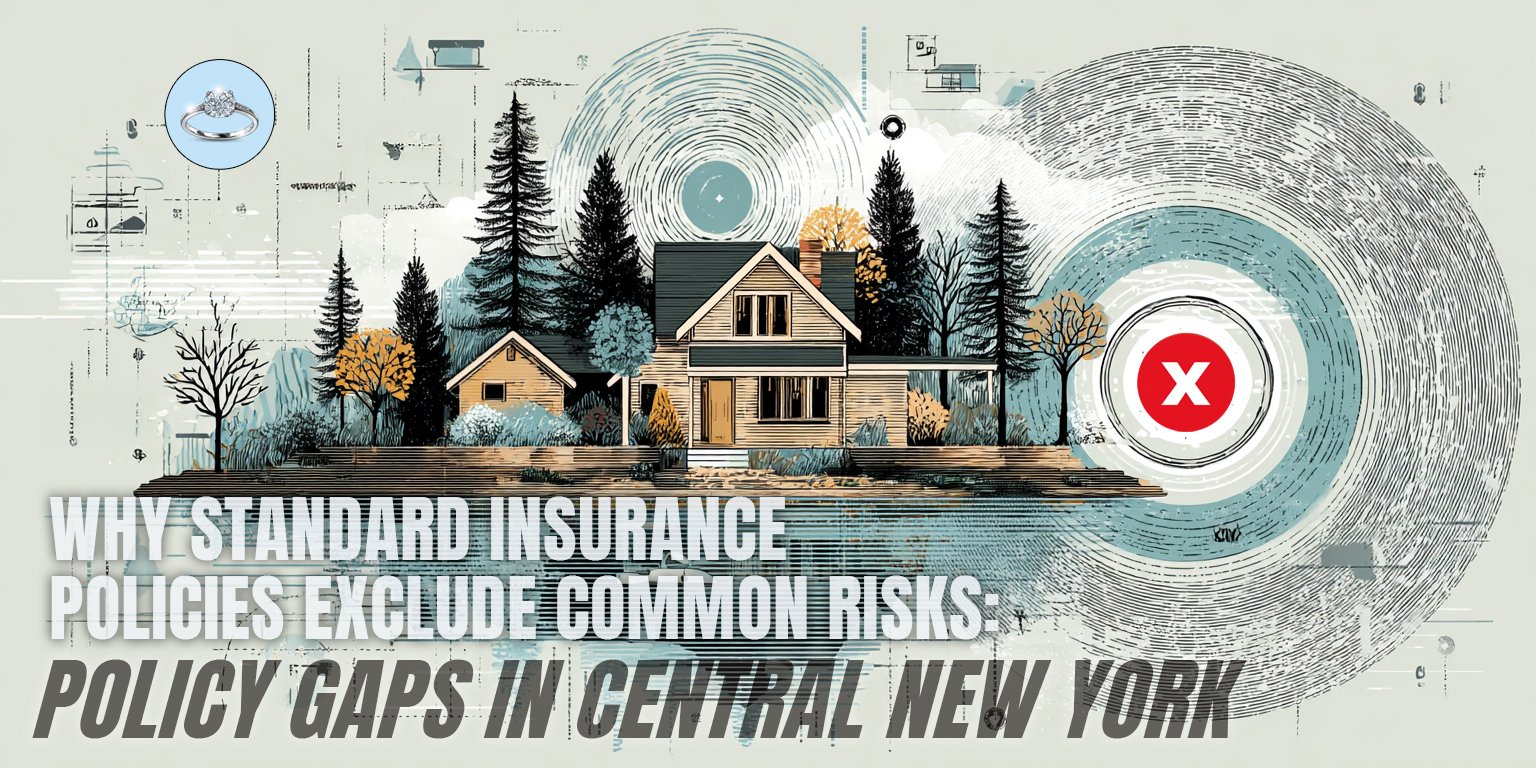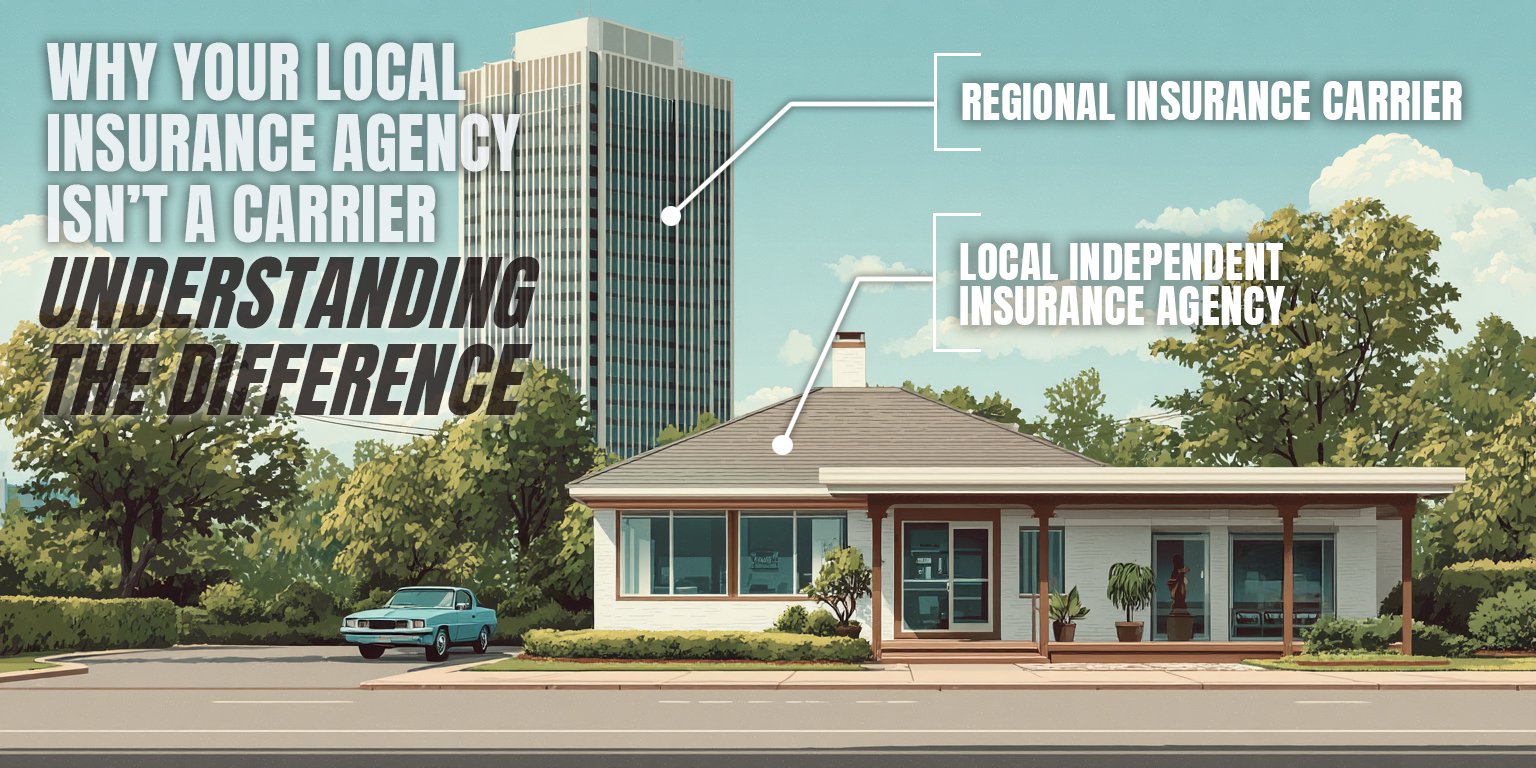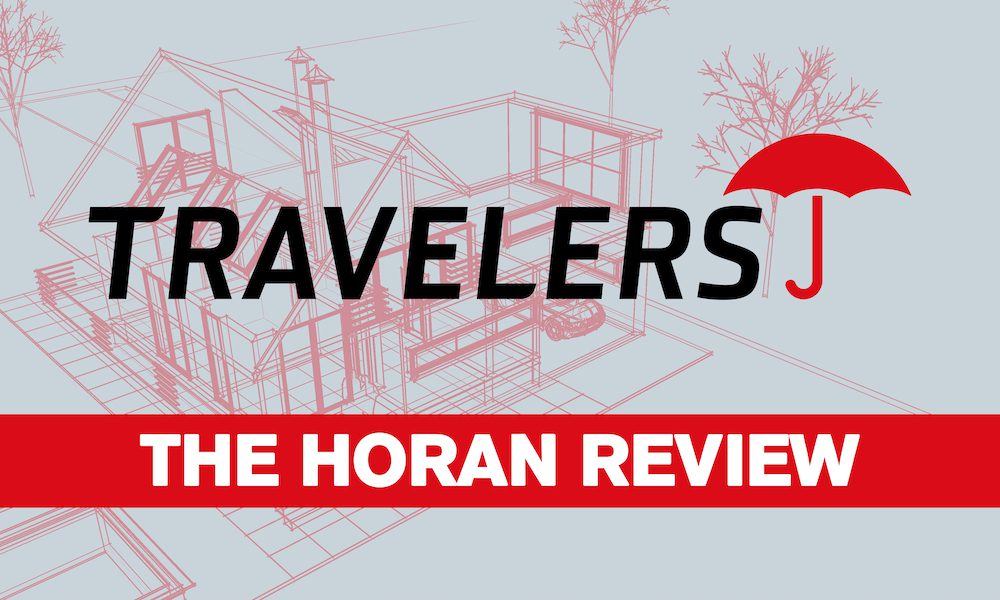Beyond the Policyholder: Understanding Different Ways to Be Listed on Insurance Policies in Central New York
September 22nd, 2025
3 min read

Insurance paperwork can feel overwhelming when you're trying to understand who gets coverage and how. Whether you're adding a family member to your auto policy or coordinating business coverage with contractors, Central New York residents often wonder about the various ways people can appear on insurance policies without being the main policyholder.
The confusion deepens when you discover that being "on" a policy doesn't always mean the same thing. Different types of listings provide different levels of coverage, and choosing the wrong one could leave you exposed when you need coverage most.
At the Horan insurance agency, we help Central New York residents understand the various ways individuals can be included on insurance policies beyond being the primary policyholder. We work with multiple carriers to provide information about coverage options that address your specific situation.
This article explores the different ways someone can be listed on insurance policies, what each designation means for coverage, and how to determine which option fits your circumstances.
Understanding the Foundation: Policyholders vs. Other Insured Parties
The policyholder, also called the named insured, owns the policy and has the authority to
- make changes,
- file claims, and
- cancel coverage.
However, insurance policies often extend coverage to other individuals through various designations.
In Central New York's diverse insurance market, these designations become particularly important when dealing with multi-generational households, business relationships, or property rentals common throughout the region.
Named Insureds: Sharing Primary Coverage Responsibilities
 Named insureds share ownership responsibilities with the policyholder. On auto policies, spouses are often listed as named insureds, giving them equal rights to make policy changes and file claims.
Named insureds share ownership responsibilities with the policyholder. On auto policies, spouses are often listed as named insureds, giving them equal rights to make policy changes and file claims.
For homeowners insurance, both spouses typically appear as named insureds when they jointly own property. In business settings, multiple owners might be listed as named insureds on commercial policies, allowing each owner to manage coverage needs independently.
Named insureds receive the full benefits of the policy and share liability for premium payments. They can add or remove coverage, change deductibles, and handle claims without additional authorization.
Additional Insureds: Extended Coverage for Specific Interests
Additional insureds receive coverage for their interest in the insured property or liability exposure, but they don't own the policy or control its terms. This designation commonly appears in business relationships and property arrangements.
Landlords often require tenants to add them as additional insureds on renters insurance policies. This coverage addresses the landlord's liability exposure related to the tenant's activities but doesn't give them control over the policy.
Contractors frequently request additional insured status on clients' liability policies. If someone gets injured during construction work at a Syracuse office building, the additional insured designation might provide coverage for the property owner's liability related to the contractor's work.
Additional Interests: Coverage for Financial Stakes
Additional interests, sometimes called interested parties, have a financial stake in the insured property but don't necessarily need liability coverage. This designation focuses on financial notification and payment rights.
When you buy a home in Central New York, your mortgage lender will require listing as an additional interest on your homeowners policy. This ensures they receive notice if you cancel coverage or if claims affect their collateral. Auto lenders similarly require this status on auto insurance policies to address their financial interest.
Additional interests don't receive liability coverage through this designation. Their coverage focuses solely on their financial stake in the property.
Listed Drivers: Coverage for Vehicle Operation
Auto policies can include listed drivers who aren't named insureds. These individuals have regular access to the insured vehicles and need coverage when driving them.
Teenage children often appear as listed drivers on their parents' policies. Some households include adult children, relatives, or caregivers as listed drivers to ensure coverage exists when these individuals drive household vehicles with permission.
Listed drivers affect premium calculations and must be disclosed to maintain coverage validity. Failing to list regular drivers can lead to coverage issues if claims occur.
Residents of Household: Automatic Coverage Provisions
Many policies automatically cover residents of the insured household without requiring specific listing. Homeowners policies typically extend coverage to family members living in the home, usually spouses, children, and other relatives by blood or marriage who reside in the household.
However, unrelated individuals living in the home might not receive automatic coverage. Roommates, live-in caregivers, or domestic partners might need specific listing to ensure coverage applies.
Certificate Holders: Documentation Without Coverage
Certificate holders receive documentation of insurance coverage (in the form of a COI) but don't receive actual insurance benefits. This designation serves administrative purposes rather than extending coverage.
Property managers might request certificate holder status to maintain records of tenant insurance compliance, while some businesses request it from vendors for recordkeeping purposes. Certificate holders don't receive claim benefits or policy control rights.
Choosing the Appropriate Designation and Avoiding Common Mistakes
Selecting the appropriate listing type depends on the relationship between parties, the level of control needed, coverage scope, and financial interests involved. Business relationships often require additional insured designations to address liability exposures, while property transactions might call for additional interest listings.
Many people assume all listings provide the same coverage, leading to gaps when claims occur. Failing to update listings when circumstances change—through marriage, divorce, new household members, or changing business relationships—can create coverage issues.
Working with licensed insurance agents helps ensure you select appropriate designations and keep them current as circumstances change. They can explain how different listings affect coverage and premiums in your specific situation.
Making Informed Decisions About Policy Listings
Understanding the various ways individuals can be included on insurance policies helps you make informed coverage decisions. Each designation serves specific purposes with different levels of coverage and control.
The Horan insurance agency provides information to Central New York residents about appropriate policy designations for their situations. We can discuss options from multiple carriers and help you understand how different listings might affect your coverage.
Don't let confusion about policy listings leave you with coverage gaps. Review your current policies to ensure all necessary parties have appropriate designations for your circumstances.
Click the Get a Quote button below to discuss how different policy designations might address your coverage requirements.
Daniel is an accomplished content creator. He has been working in publishing for almost two decades. Horan Companies hired Daniel as its content manager in November 2022. The agency entrusted its messaging to him. Since then, Daniel has written insurance articles, service pages, PDF guides, and more. All in an effort to educate CNY readers. He's helping them understand the world of insurance so they can make informed decisions.
Topics:




























